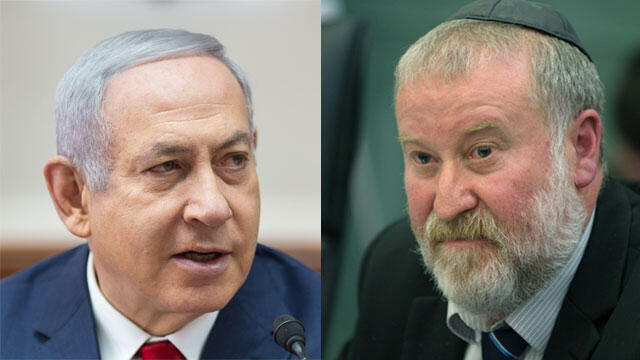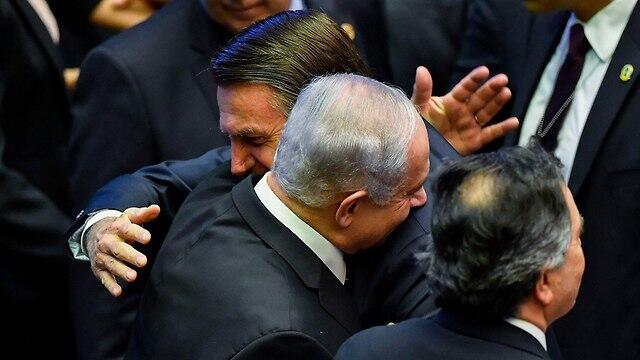Getting your Trinity Audio player ready...
Prime Minister Benjamin Netanyahu's legal team on Tuesday night came out against Attorney General Avichai Mandelblit's plans to announce his decision in the three pending corruption cases against the prime minister before the April 9 elections.
and Twitter
Netanyahu last week announced a snap election ,seeking a fresh political mandate that could help him weather possible charges in corruption investigations. He is enmeshed in three graft cases and denies any wrongdoing.
Should Mandelblit decide to press charges against Netanyahu, he would announce the indictment pending a hearing, after which charges could be filed in court.
2 View gallery


Prime Minister Benjamin Netanyahu; Attorney General Avichai Mandelblit
(צילום: עמית שאבי, אמיל סלמן)
Mandelblit and State Attorney Shai Nitzan are working to complete work on the three investigations in the coming weeks and make a decision on whether to indict Netanyahu and on what charges about a month and a half before Israelis head to the polls.
Judicial officials estimate there is sufficient evidence against Netanyahu to indict him for fraud and breach of trust in a conflict of interest, and discussions are now focused on whether there is sufficient evidence for a bribery conviction as well.
"To declare a hearing during an election campaign without hearing the other side is a distortion of the electorate's wishes and a serious blow to the democratic process," the prime minister's lawyers said in a statement.
"It is undemocratic to begin a hearing before the elections when it cannot be concluded before the elections. It cannot be that the public would only hear one side and not the other. There have been many cases in which hearing the other side's responses in the hearing have led to the cases being closed," the statement went on to say.
"We believe there will be no hearing, because there was nothing," the prime minister's attorneys insisted.
Netanyahu himself said in a press conference in Brazil on Monday that he does not intend to resign or bow out of the election race if charges are filed against him.
"According to the law, the prime minister does not have to resign during the hearing process ... The hearing doesn't end until my side is heard," he said.
2 View gallery


Prime Minister Benjamin Netanyahu with new Brazilian President Jair Bolsonaro at his inauguration
(צילום: AFP)
"Imagine what would happen if a prime minister is ousted before the hearing is finished, and then after the hearing they decide to close the case. It's absurd. It's a terrible blow to democracy."
During an annual meeting that Mandelblit had last week with former attorneys general and state attorneys, most of the attendees contended he must make the effort to conclude work on the cases before the elections, so the public could be informed before placing their ballots.
According to a report by the Israel Television News Company, the meeting's attendees stressed that Mandelblit did not consult with them about the case, and the matter came up as part of a general discussion on current events, including the Nation-State Law, the legal advisors bill and the Regulation Law.
The Justice Ministry's spokesman said in response to the report that "Every year, the attorney general holds an annual meeting with former attorneys general and state attorneys, with the participation of the state attorney, senior legal and judicial advisors, and the Attorney General's Office. The meeting was scheduled in advanced several months ago and was held for the second year. During the meeting, different legal issues on the agenda came up.
"As part of the forum's discussions, the topic of the timing of the decision on the cases against the prime minister came up. The attorney general did not bring up the matter himself, and the meeting was not held to discuss this issue. The attorney general addressed the matter during his comments, explaining that the decision-making process on these cases continues as normal despite the dispersal of the Knesset. The attorney general made no commitment on the timing for his decision."
Reuters contributed to this story.

